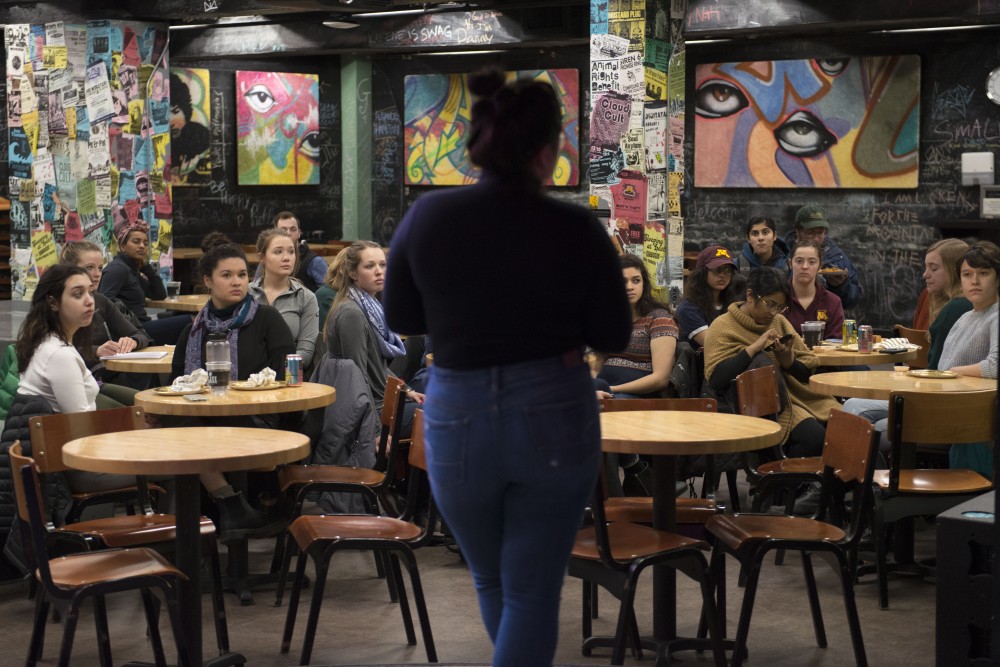With the excitement of this year’s Super Bowl comes concern over its possible negative consequences.
While the game’s presence will bring benefits to the Twin Cities area, some experts and protesters are highlighting issues such as financial burdens, stress on the area’s infrastructure and sex trafficking.
An event like the Super Bowl can take from a city in multiple ways, said Douglas Hartmann, professor and chair of the Department of Sociology at the University of Minnesota, adding that the millions of dollars of estimated gains from the event are radically overestimated.
“Even when there are economic benefits, they’re often not evenly distributed, and they often go to the people who are the wealthiest,” Hartmann said. “That’s especially an issue with [U.S. Bank Stadium] because so much of that was built with public money, but it’s not like you get a lot back.”
The MN Super Bowl Host Committee estimates a $400 million positive economic impact on the Twin Cities region over the 10 days surrounding the Super Bowl, as about 125,000 people visit the area from out-of-state.
Public safety and public works costs associated with the Super Bowl are estimated to be $5.7 million, said Michael Howard, director of communications for the committee.
Hartmann added that citywide events can build civic pride and contribute to residents’ sense of vitality in the community. He said many are proud to host, and the city receives national and international attention.
Still, other issues include added stress on public transportation and infrastructure, and interruptions to usual business and traffic, Hartmann said.
Light rail trains will be accessible only to Super Bowl ticket holders on Sunday, Feb. 4, and multiple city streets have been closed off since Jan. 29 and will remain closed until Feb. 5.
Businesses that are not in close proximity to the stadium will be less likely to see the benefits of the game, Hartmann said.
“There’s really not enough people coming to town for everybody who thinks they’re going to benefit to benefit,” Hartmann said. “That’s kind of a disappointment … especially when people or small businesses made a lot of arrangements, and then there just isn’t the capacity or there just isn’t the demand.”
Advocacy groups like the University of Minnesota Women for Political Change, the Carlson School of Management’s Net Impact organization, the Twin Cities’ Take A Knee Nation and others are hosting events to emphasize issues that may be heightened or spotlighted by the game, like sex trafficking, the unchecked power of large companies, police violence and racism.
“Anytime there’s a large number of people centered in one place, it’s much more likely that there’s going to be [sex trafficking],” said Ana Mendoza Packham, vice president of WFPC.
Groups like WFPC are taking advantage of the spotlight on Minneapolis to make sports a focus of activism and resistance, Hartmann said.
The Young Peoples Action Coalition hosted an anti-Super Bowl event to “demand that the NFL billionaires listen to our voices” on Monday, according to a Facebook event page.
Several local organizations are protesting Home Depot during an event calledTackle Corporate Greed on Feb. 2, the Women’s March Minnesota will advocate for a $15 minimum wage with their Super Bowl Breakfast on Feb. 3 and the Super Bowl Anti-Racist Anti-Corporate Coalition will hold a rally on the day of the game.
“They spent almost a billion dollars of taxpayer money on the stadium, and what do we get out of that?” said Mel Reeves, a Twin Cities activist involved with Take A Knee Nation. “Now they’re saying we can’t protest at the stadium that was built with taxpayer money. That’s pretty bold, but that’s what they do all the time.”








